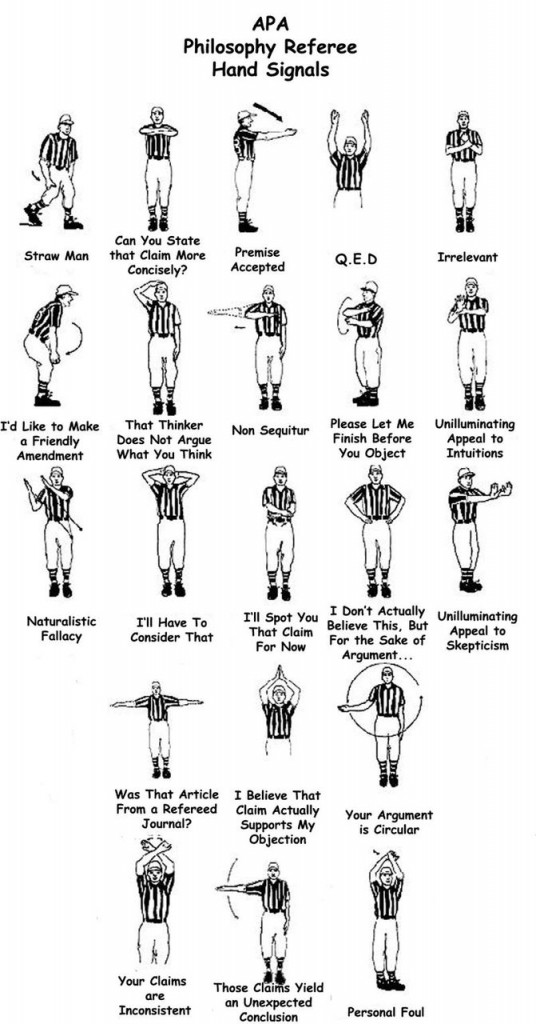While privacy education requires philosophical insight, relevant philosophical analysis must be applied to constantly shifting technological, social, legal, and political conditions.Why A Philosopher Teaches Privacy
Thursday, August 21, 2014
Why A Philosopher Teaches Privacy
Saturday, August 16, 2014
Philosophy Referee Hand Signals
"The next time you’re presiding over an intense philosophical debate, feel free to use these hand signals to referee things. "
Thursday, August 14, 2014
Philosophy and Science: Double Team? » IAI TV
So even before we get to the ethics and the politics, I would say right from the very beginning, science and philosophy are intertwined. Philosophers need to keep pointing that out.Philosophy and Science: Double Team?
'via Blog this'
Don’t Dismiss the Humanities
Nicholas Kristof of the NY Times writes
So let me push back at the idea that the humanities are obscure, arcane and irrelevant. These three philosophers influence the way I think about politics, immigration, inequality; they even affect what I eat.
It’s also worth pointing out that these three philosophers [Berlin, Singer, Rawls] are recent ones. To adapt to a changing world, we need new software for our cellphones; we also need new ideas. The same goes for literature, for architecture, languages and theology.Don’t Dismiss the Humanities
The humanities strengthen the study of science
Elizabeth H. Simmons, dean of Lyman Briggs College, acting dean of the College of Arts and Letters, and University Distinguished Professor of Physics at Michigan State University, writes about the value of a humanities education for scientists.
In the end, Cushing’s brain collection vividly reminds us why it is crucial to immerse natural science students in interdisciplinary science studies that incorporate the social sciences and humanities. It is not merely because hot new fields are said to lie at the unexplored intersections of fields whose borders were arbitrarily codified decades or centuries ago (though that is true). It is not merely because the terms interdisciplinary, cross-disciplinary, and trans-disciplinary are presently in vogue (though that is also true). It is because such cross-training produces scientists who are both more capable of extraordinary breakthroughs and more mindful of their broader impacts. The humanities truly strengthen science.The humanities strengthen the study of science
Subscribe to:
Posts (Atom)
